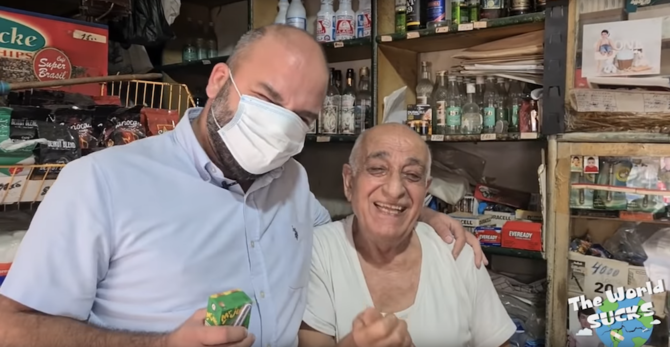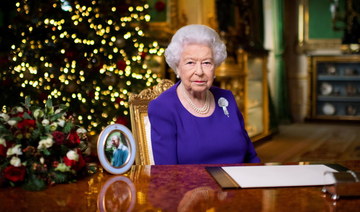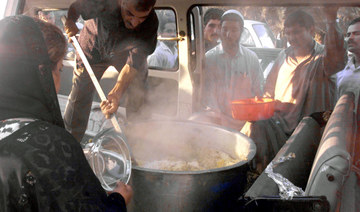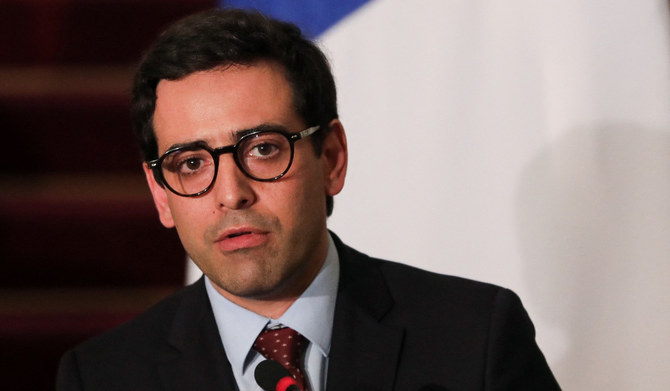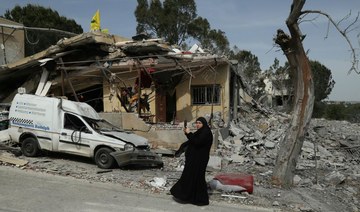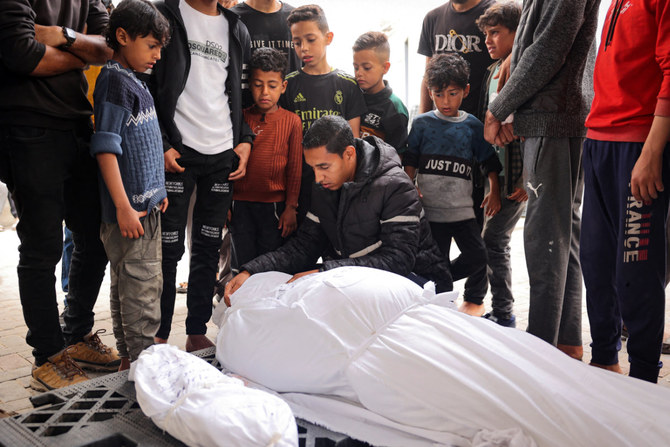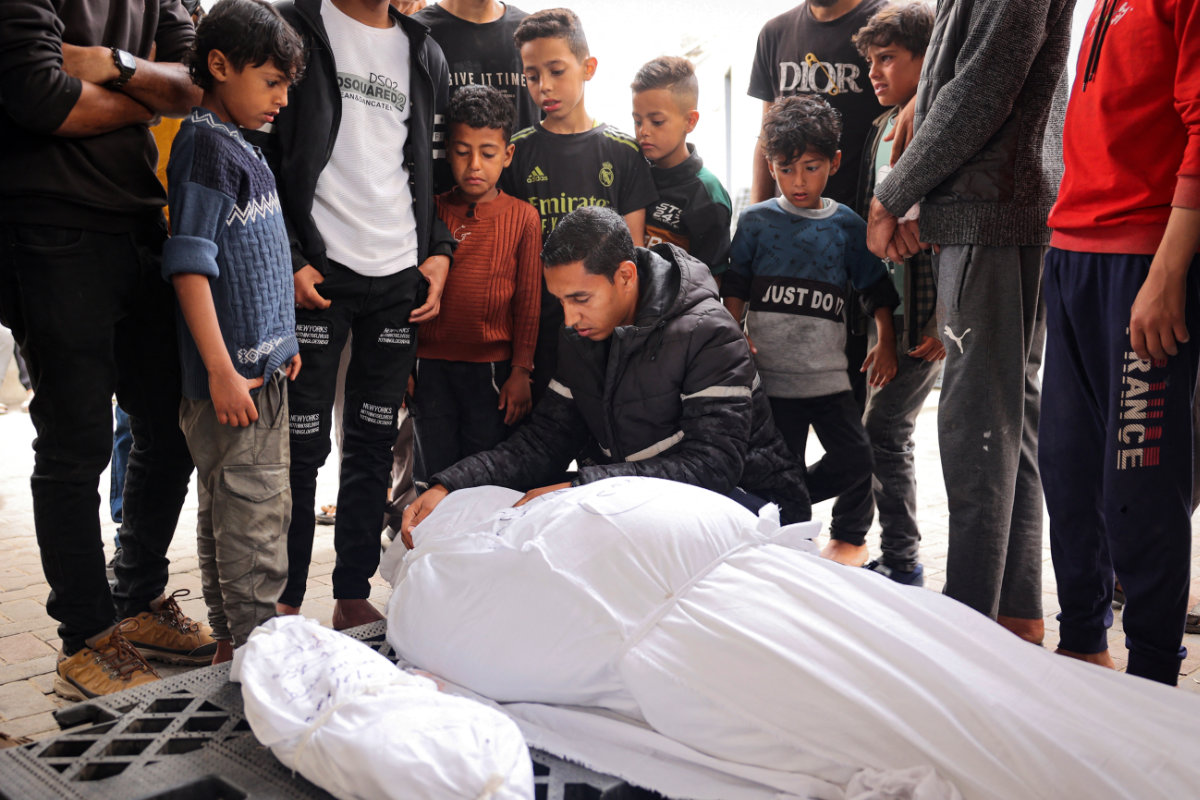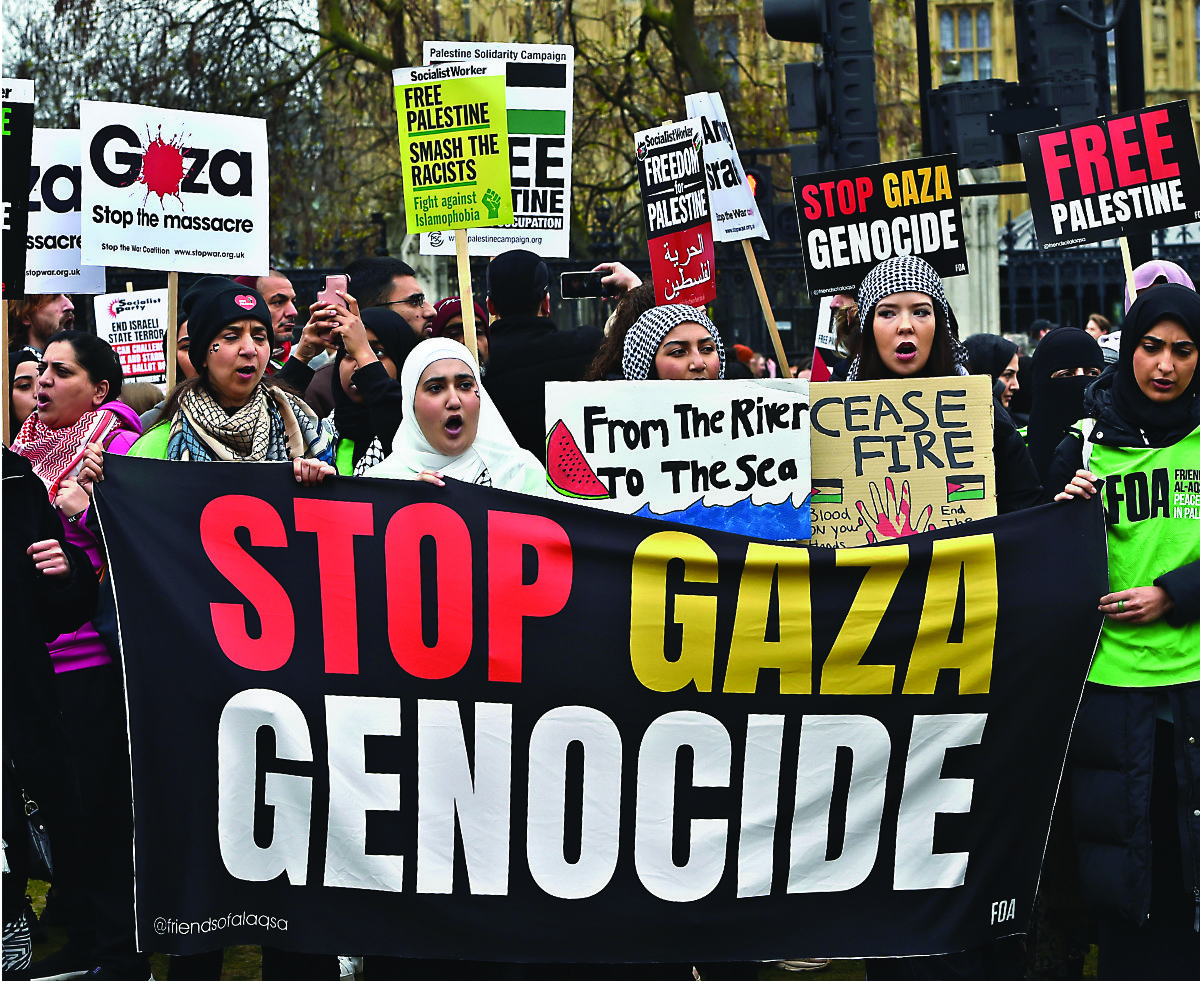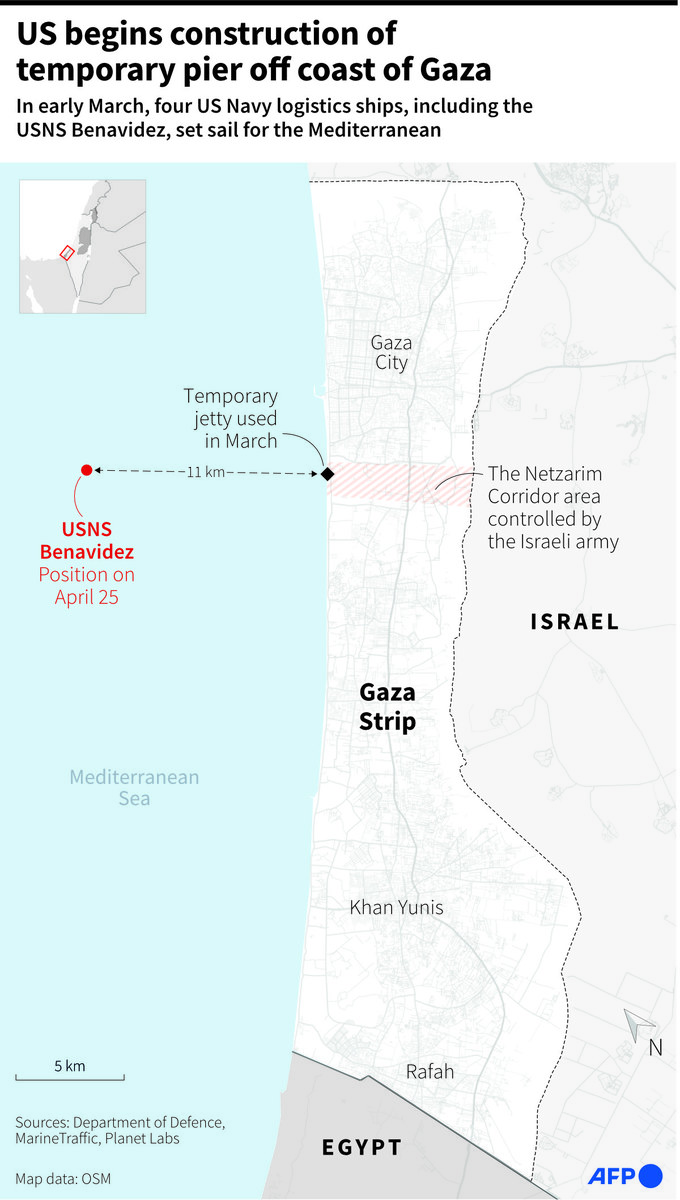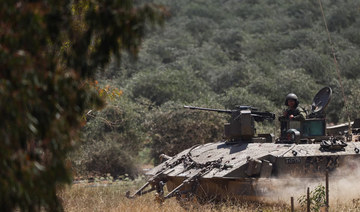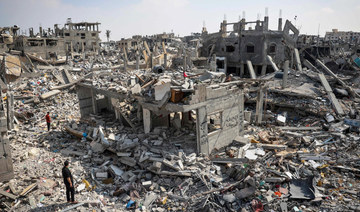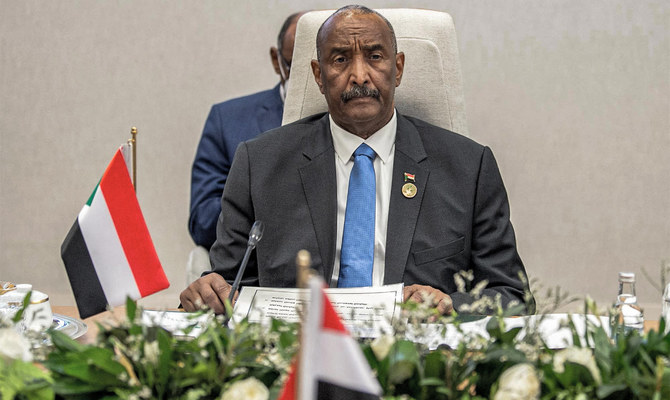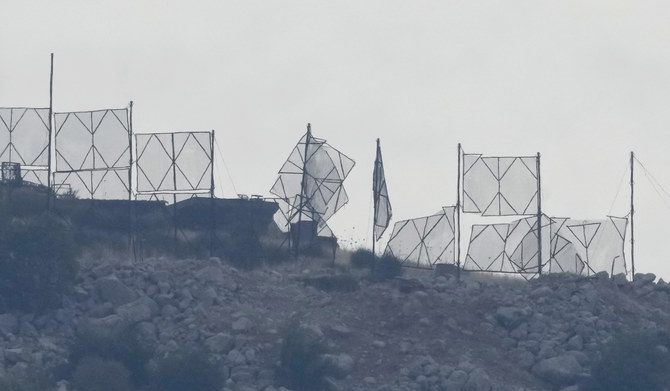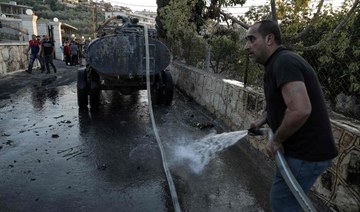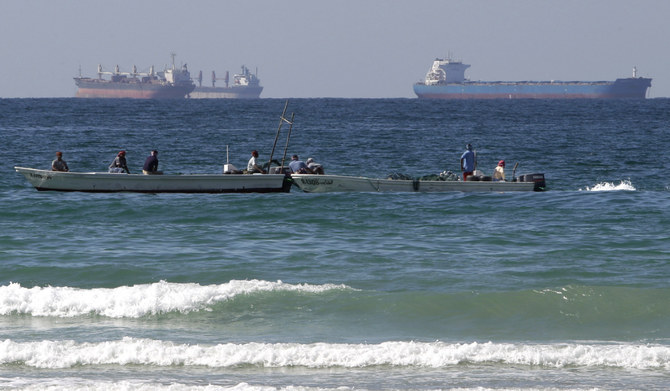DUBAI: No good deed goes unpunished, it is said. But thanks to one Beirut philanthropist, some good deeds end up being not only rewarded but also recorded.
The World Sucks (TWS) — a Lebanese social video channel devoted to documenting acts of kindness — was created just over a year ago to motivate the beneficiaries to pay it forward and give back to the community.
“As much as you try to help, you will never be able to solve all the problems,” the founder of TWS, who prefers to remain anonymous, told Arab News. “But a way to get close to that goal was to make videos to motivate people to either pay for someone’s food or offer them a free ride.”
In one of the channel’s earliest videos, the founder begs local cab drivers for a free ride, claiming to have no money. As a reward for their kindness, drivers who took pity on the “penniless” passenger were handed a large sum of cash — and their pleasant surprise caught on camera.
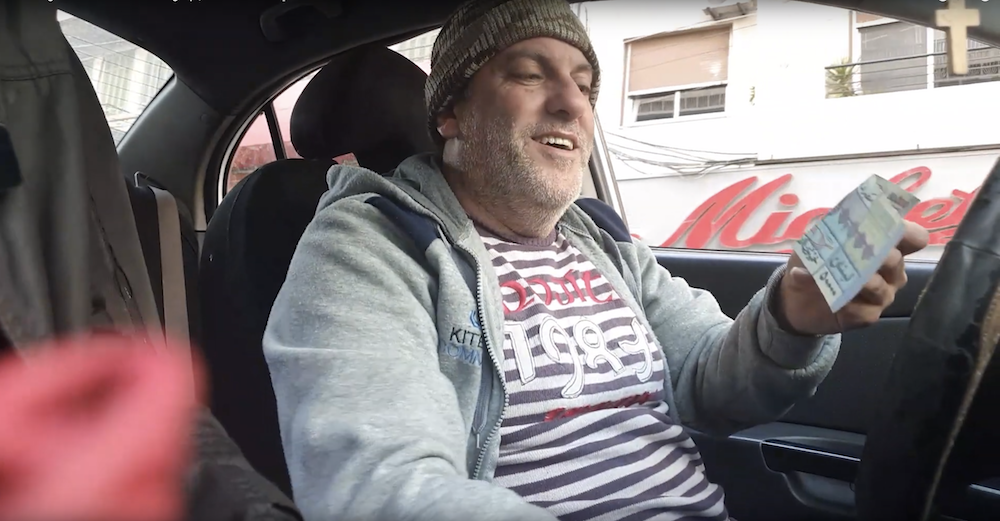
As a reward for their kindness, drivers who took pity on a “penniless” passenger were handed a large sum of cash. (Screenshot: YouTube)
“It was really fun,” he said, recalling the adrenaline rush of that first encounter. “I couldn’t sleep all night thinking about what happened.”
The first six videos were paid for out of the founder’s own pocket. But as the channel’s popularity grew, clocking up at least 31,600 Instagram followers and 5,200 YouTube subscribers, donations soon began flooding in, allowing TWS to go bigger and bolder.
“We always try to find different people to surprise, sometimes taxi drivers, sometimes cart vendors or random people,” the founder said.
“We then shifted to target hard-working or under-appreciated individuals, because times got really tough in Lebanon with the financial situation and the lockdowns due to the coronavirus pandemic.”
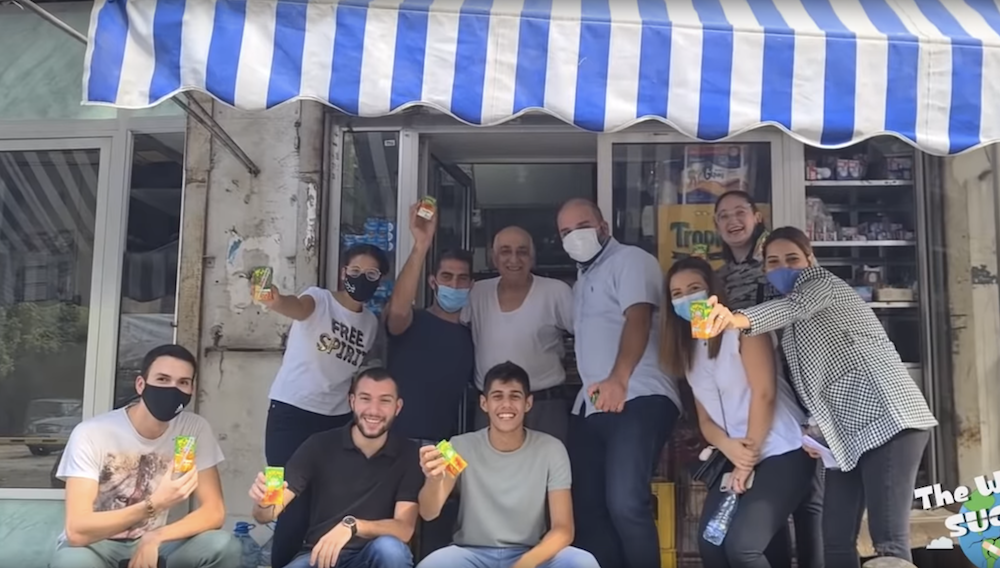
Although the channel began as a hobby, its creator, who is self-employed, says he has no plans to stop making videos. (Screenshot: YouTube)
To date, TWS has published 43 videos, all recorded in the past year. There are now plans to boost output from once a month to once a week.
Although the channel began as a hobby, its creator, who is self-employed, says he has no plans to stop making videos, which have earned a big following across the region and especially among the Lebanese diaspora.
“Doing it is a lot of fun,” he said. “People always send messages thanking me and we meet so many interesting people.”
When the channel first went viral, it was averaging monthly donations totaling around $500. Today, this has soared to $1,886, donated by 68 loyal contributors.
By May 2020, TWS had raised $15,000 from various non-governmental organizations to help the homeless.
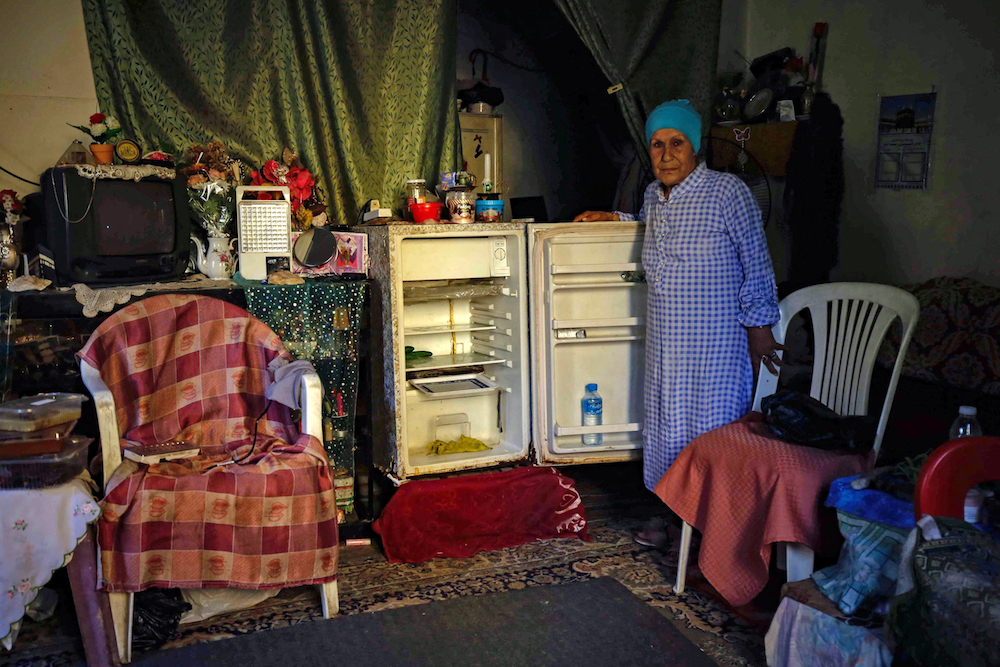
When the channel first went viral, it was averaging monthly donations totaling around $500. Today, this has soared to $1,886, donated by 68 loyal contributors. (AFP/File Photo)
“The videos aren’t done to help someone specific but to remind people that there are people like these in every village and region,” the founder said. “Go down to the street and pay him directly — that’s the beauty.”
As word has spread of TWS’ philanthropy, local NGOs have also become beneficiaries of the resulting publicity. For instance, Beit El-Baraka, a charity which cares for the elderly, received donations worth $5,000 after reposting one of TWS’ videos. “They’re so ethical, they wanted to give us the money, but we asked them to spend it themselves,” the channel’s founder said.
“People in Lebanon are good. They deserve it because they work hard. People think 2020 was a hard year, but in Lebanon we wish we could have had the year others had. This isn’t just linked to what’s happening in Lebanon, but it’s a way to give back to the community.”
For TWS, copycats are welcome. The team behind it wants to start a chain reaction of kindness, the logic being that donating money to someone in need is a short-term solution, while offering someone a free service could be life changing.
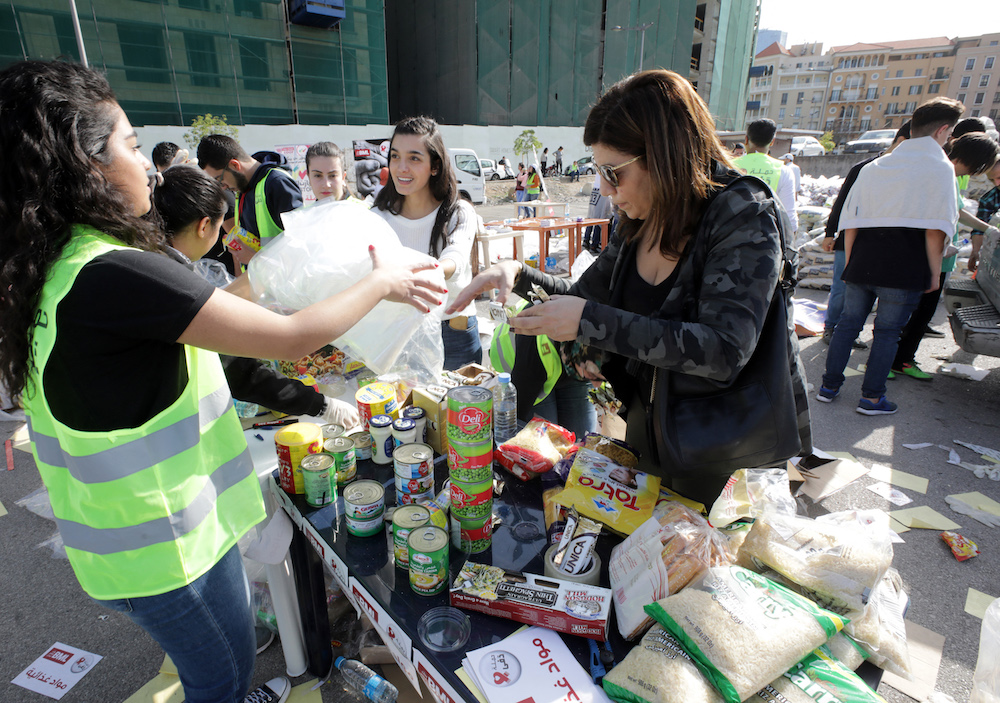
By May 2020, TWS had raised $15,000 from various non-governmental organizations to help the homeless. (AFP/File Photo)
After rewarding the kindly taxi drivers of Beirut, the channel began looking at local restaurants. Posing as a hungry beggar, the channel’s founder asked one local eatery for free food. He says it was one of the hardest things he has ever had to do.
The owner’s selfless act quickly paid off when the TWS team returned the following day and bought the restaurant’s entire stock. Additionally, the publicity generated by TWS’s Instagram page led to a flood of new customers. “He’s a good person and he deserves to grow,” the channel’s founder said.
The COVID-19 pandemic made an already desperate situation for millions of Lebanese even harder. And just when they thought things had reached rock bottom, the Aug. 4 Beirut port blast leveled a whole city district.
Three days before the Lebanese government ordered lockdown measures to contain the coronavirus outbreak, the channel’s founder carried out an experiment. He approached 10 cab drivers for a free ride and 10 bakeries for free food. Although they all faced closures and a significant loss of business in the weeks ahead, every single one of them said yes.
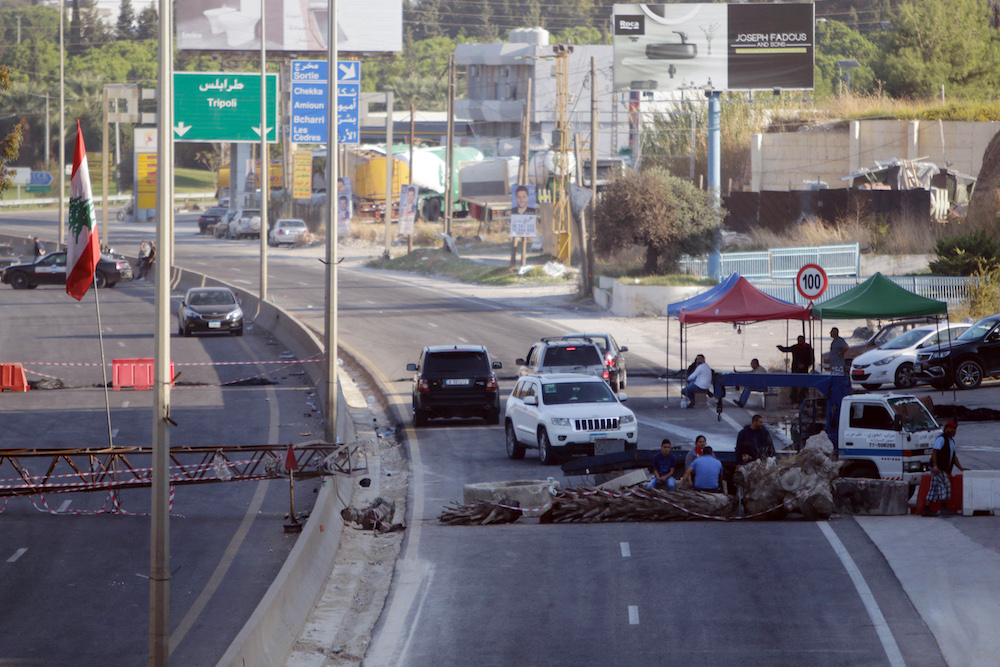
The COVID-19 pandemic made an already desperate situation for millions of Lebanese even harder. And just when they thought things had reached rock bottom, the Aug. 4 Beirut port blast leveled a whole city district. (AFP/File Photo)
“It was unbelievable that before lockdown in a crisis, people are really there for each other, especially after the explosion,” he told Arab News.
“Lebanon deserves your help. The people here are good people. Maybe in most countries of the world people won’t offer free goods or services, but the beauty about Lebanon is that generosity.”
Most donations are paid in dollars from abroad to ensure no money is lost when converted to Lebanese pounds, the local currency which went into free fall last year. Monthly donors earn the title of “patron,” while those who wish to contribute from within Lebanon itself are advised instead to create their own community projects.
For others, watching, “liking” and subscribing is enough to help spread the good word. For its beneficiaries, the format is much more than wholesome online entertainment — it is a blessing.
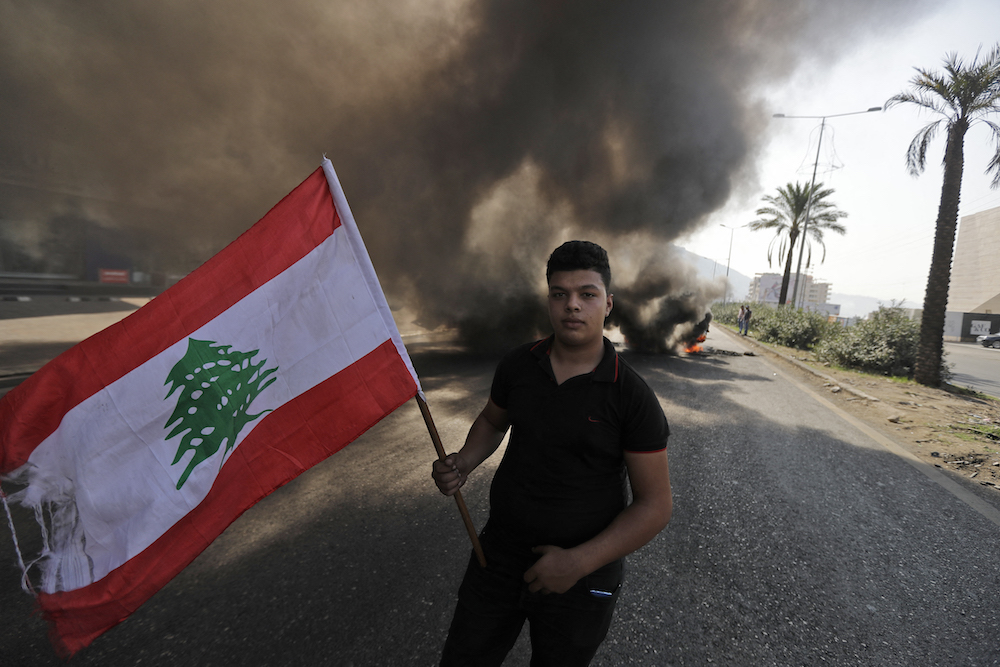
A Lebanese youth waves a national flag in front of burning tyres blocking the Beirut-Tripoli highway in the coastal town of Ghazir, north of the port city of Junieh, during continuing anti-government protests across Lebanon on November 13, 2019. (AFP/File Photo)
“The surprise factor makes such a difference in somebody’s life or day and sometimes people experience a massive change in their life after that,” the founder said.
“Surprising them while giving them the money makes it an unforgettable experience for them.”
The element of surprise is one of the main reasons the channel’s founder wishes to remain anonymous. If he becomes too well recognized, the people TWS is trying to help will not be so easily fooled, spoiling the magic.
He also prefers to remain anonymous to maintain neutrality, in a society divided along confessional lines where one’s name can give away one’s religious or political background. “There is no room for politics nor gain on this page,” the founder said.
But above all, anonymity is an act of humility in a culture where “showing off” one’s charity is frowned upon.
“My sole aim and purpose,” he said, “is to give back to humanity.”
----------------------
Twitter: @CalineMalek



